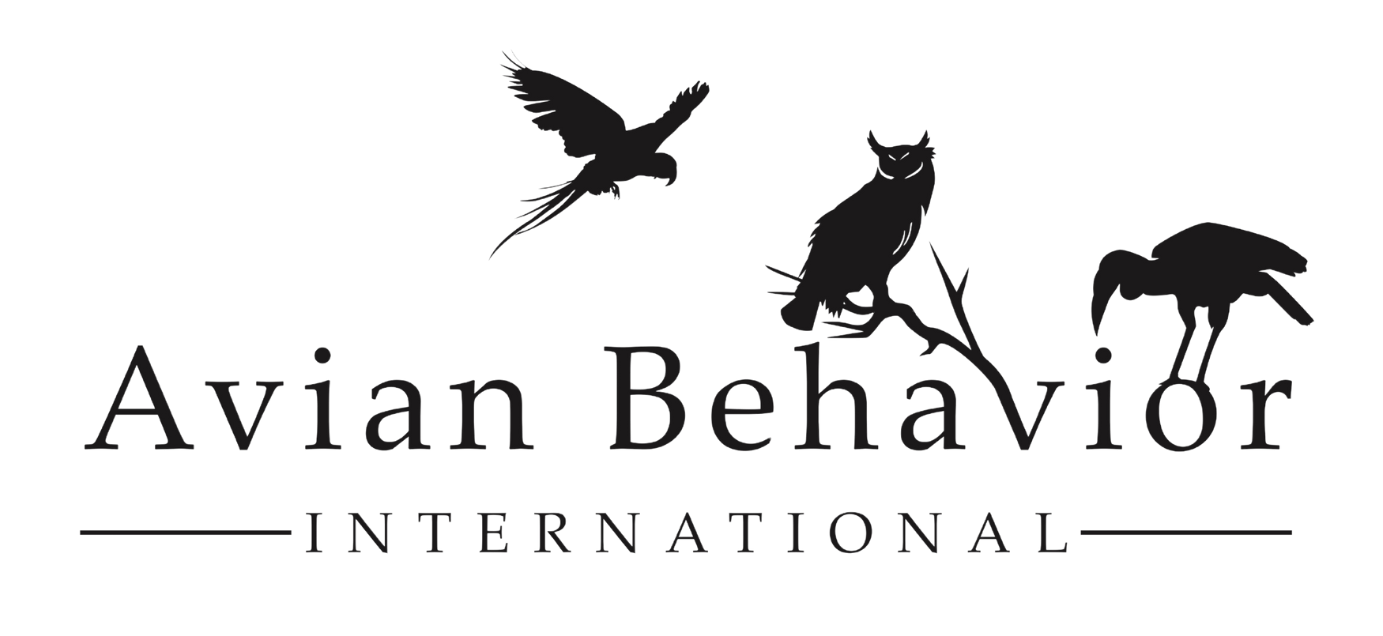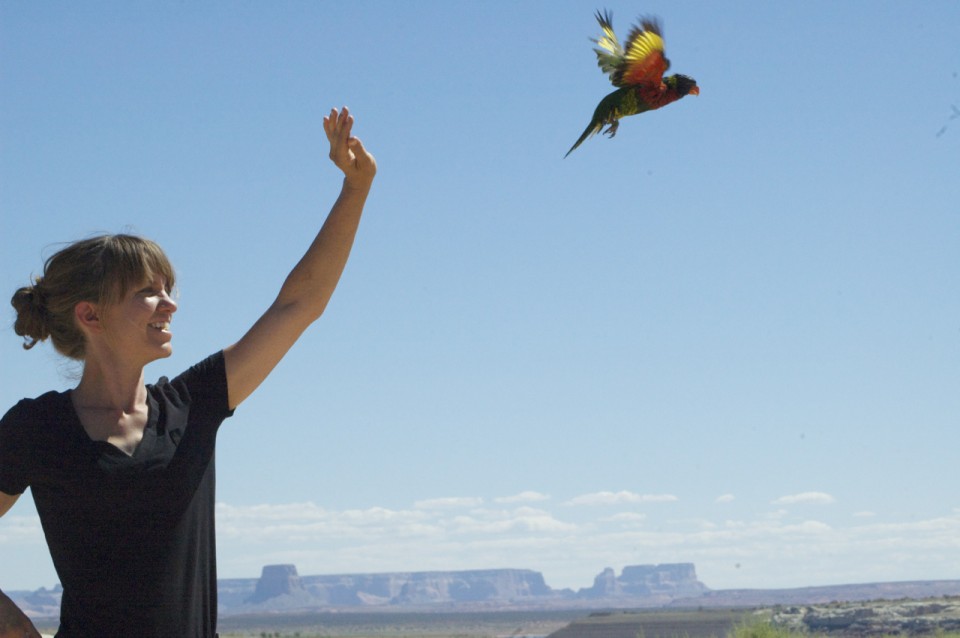
17 Apr Ikigai: Pursuit of Passion and the Reason for Being
Those close to me have called Avian Behavior International a passion project, borne of an idea hatched many years ago, and buried in a pipeline of steady jobs, bills to be paid, and of course, comfort and security. Dreams often get put off because they are too big or too frightening and instead, we convince ourselves that the path we are on will lead us to happiness just as well. After all, not many countries in the world afford a comfortable living working with and training exotic animals, let alone birds, and the US is one of the few. There are a number of institutions here that seek, grow, and inspire incredible minds in the field of bird husbandry and training.
Similarly, it took much reflection and maturation to realize personal goals weren’t about the hedonistic pursuit of spending each waking moment in the company of birds. Harkening back to the events that shaped the course of my path, an overwhelming desire grew to create something that moved the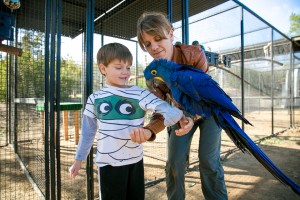 meter on a much grander scale, to reach an audience on a more intimate level, to build the type of encounters with birds that ignite all of the senses, that stare us down and dare us to remain uninspired and unmoved. And finally, a personal, undeniable truth resounded that it was necessary to be a part of the burgeoning, brave movement that puts the ethics and dignity of training and educating with birds at the forefront. These are the things that I realized I was truly passionate about, passionate enough to forfeit my comfort and security, the life and lifestyle that, on paper, was boast-worthy, passionate enough to leverage almost everything to create a business model that focuses on the human-animal connection.
meter on a much grander scale, to reach an audience on a more intimate level, to build the type of encounters with birds that ignite all of the senses, that stare us down and dare us to remain uninspired and unmoved. And finally, a personal, undeniable truth resounded that it was necessary to be a part of the burgeoning, brave movement that puts the ethics and dignity of training and educating with birds at the forefront. These are the things that I realized I was truly passionate about, passionate enough to forfeit my comfort and security, the life and lifestyle that, on paper, was boast-worthy, passionate enough to leverage almost everything to create a business model that focuses on the human-animal connection.
Passion is a powerful force, and yet, it is often used to describe the way we feel about a myriad of objects and enterprises: music, poetry, food, world peace… It would be misguided to think of a passion project as an egocentric endeavor used to answer the question of how to fulfill one’s quest for personal joy or bliss. Once we habituate to happiness that one new activity brings, we move on looking for the next big thing to satisfy us. In fact, the word “passion” actually comes from the Latin pati, which means to suffer or endure. Instead of considering passion seeking as something that brings personal enjoyment, what if the path to finding true happiness and fulfillment was asking what we are willing to suffer for?
To suffer does not necessarily have to mean being in constant anguish, but to stretch ourselves beyond our comfort zone to the point of dangling, to 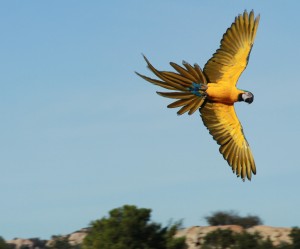 re-catalog priorities in a manner that we didn’t know we were capable of, and to truly humble ourselves in order to grow at a craft that can, in turn, make an impact on others’ lives. Once realized, that is how the seed of Avian Behavior International was planted. A seed, like a rivulet of water finding a crack in the earth, knows nothing but to push against the borders that constrain it, forever disrupting and denaturing the surrounding environment.
re-catalog priorities in a manner that we didn’t know we were capable of, and to truly humble ourselves in order to grow at a craft that can, in turn, make an impact on others’ lives. Once realized, that is how the seed of Avian Behavior International was planted. A seed, like a rivulet of water finding a crack in the earth, knows nothing but to push against the borders that constrain it, forever disrupting and denaturing the surrounding environment.
Avian Behavior International strives to reach an incredibly wide audience; it has been our experience 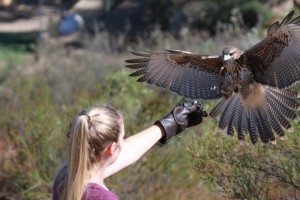 that the ability to take one’s breath away with the image of a freely flying bird or close encounter with a magnificent bird of prey knows not the boundaries of age, gender, nationality, or affinity for animals. We realize that the more we turn native habitat into our living rooms and boardrooms, the farther we get from nature. We have built our workshops and seminars for the workplace around the unparalleled capacity of these animals to learn and inspire, and that message is congruent whether you wear a suit and tie to work or your best zoo khakis; the fact remains that animals engage and connect us. The Okinawans have a term for sense of purpose, or why we get out of bed in the morning, called ikigai. One could say the ikigai that drives ABI is to use our skills to not only show what incredible feats animals are capable of, but also how the human-animal relationship allows both parties to be better together than they are apart.
that the ability to take one’s breath away with the image of a freely flying bird or close encounter with a magnificent bird of prey knows not the boundaries of age, gender, nationality, or affinity for animals. We realize that the more we turn native habitat into our living rooms and boardrooms, the farther we get from nature. We have built our workshops and seminars for the workplace around the unparalleled capacity of these animals to learn and inspire, and that message is congruent whether you wear a suit and tie to work or your best zoo khakis; the fact remains that animals engage and connect us. The Okinawans have a term for sense of purpose, or why we get out of bed in the morning, called ikigai. One could say the ikigai that drives ABI is to use our skills to not only show what incredible feats animals are capable of, but also how the human-animal relationship allows both parties to be better together than they are apart.
